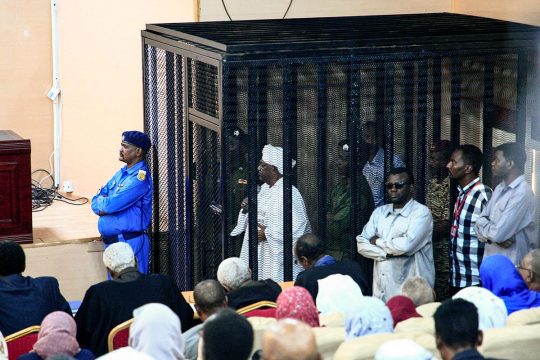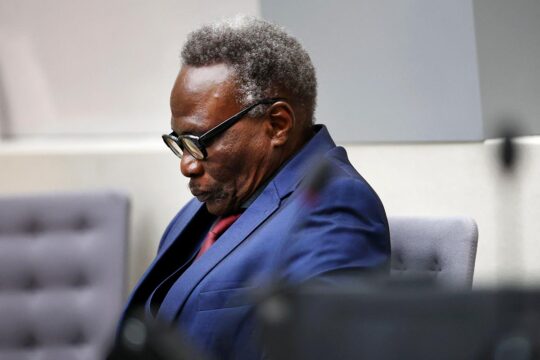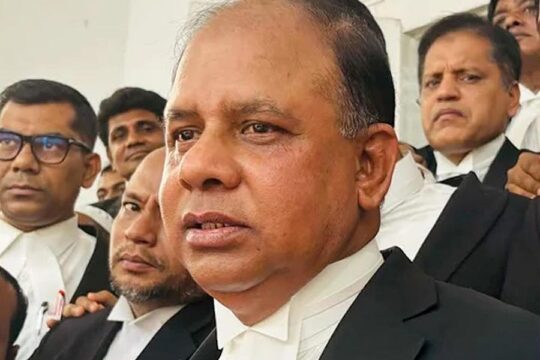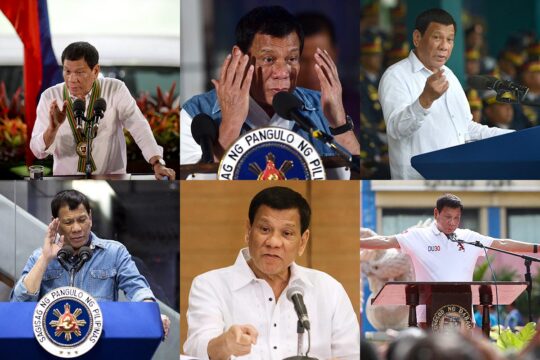It is already a year since Sudanese President Omar Al-Bashir was forced from office on 11 April 2019, after thirty years in power. He was toppled during a palace revolution led by generals who hoped to save their post and their skin in the face of a popular uprising that had begun some four months earlier. The Sudanese crowds nevertheless continued to call for "freedom, peace and justice". After weeks of chaotic negotiations, bloody repression and an effective campaign of civil disobedience, the military were forced to relinquish power. They now share it with civilians for a three-year transition period.
The demands for justice are still everywhere, on walls, in demonstrations, rallies and conversations. Every third day of the month, in memory of the June 3, 2019 violent clampdown on sit-ins, hundreds of young people, friends and families of victims gather near the Nile to demand justice. The transitional authorities have tried to provide initial responses. Prime Minister Abdullah Hamdok has appointed an independent commission of inquiry into the violence of June 3. This commission started work last December, heard thousands of witnesses, watched thousands of videos and read a great many testimonies. It had three months to deliver its conclusions. "But this commission was a bad idea," says Mohamed Babiker, who is head of the University of Khartoum's law faculty, an expert in international criminal law and lawyer for some families of victims of the June 3 crackdown. According to him, the Prime Minister has boxed himself into a corner. "If the commission finds the Military Council in power at the time responsible, it will also be accusing people who now sit on the Sovereign Council, since they are the same ones. If the commission does not say who was responsible, it will incite anger among those who staged the revolution and brought civilians to power. In both cases, it will spark a very serious crisis," says Babiker. The only solution, according to him, is to set up transitional justice.
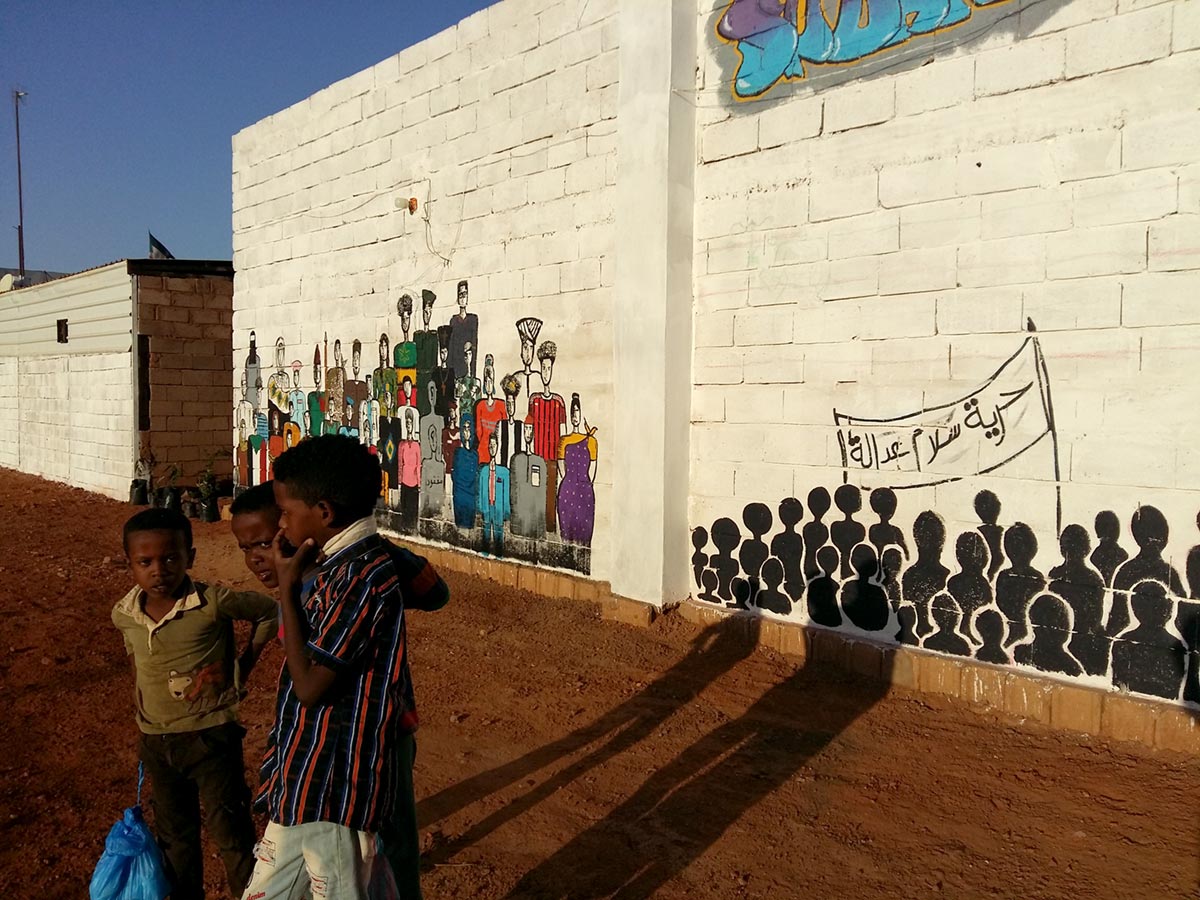
Justice awaits comprehensive peace deal
Transitional justice is written into the texts. "The Constitutional Declaration signed on 17 August 2019, which serves as supreme law for the three years of transition, provides for the formation of a commission on transitional justice," says Suliman Baldo, a veteran of international human rights organizations and advisor to the Enough Project. "But at the moment, it's still unclear. To be adopted, the project must go before a joint session of the Council of Ministers and the Sovereign Council." In other words, it must be accepted by the generals who hold five of the 11 positions on the Sovereign Council, the collegial presidency. That is the first difficulty. A draft drawn up by the Justice Ministry has also been heavily criticized by legal experts. "It was written without consulting civil society or the victims," says Baldo.
Mohamed Babiker deplores "the government's lack of vision". "Sudan is a special case," he says. "We have crimes of a double nature. There are those committed by a dictatorial regime - murders, mass disappearances, torture - and those committed by a regime at war with part of its population in marginalized regions like Darfur, the Nuba Mountains and Blue Nile. This dual aspect makes the establishment of transitional justice even more complex than elsewhere.”
For the government, the priority is peace. "Justice will come in its wake," said Natalina Yacoub Abbo Kanuna, an aide to the Prime Minister, at the end of February. The setting up of independent commissions on things like borders, the future constitution and gender equality, as provided in the Constitutional Declaration, as well as the appointment of the Transitional Legislative Council to sit until elections in 2022 have now been postponed pending a comprehensive peace agreement. This was "at the request of the Sudan Revolutionary Front (SFR), which includes the majority of the rebel groups," says Mubarak Ardol, former spokesman for the SPLM-North political party allied to the SFR and now adviser to the Minister of Energy and Mines. The peace talks are taking place in Juba, capital of South Sudan and are dragging on, as warlords joust for places in the transitional authorities.
Omar al-Bashir at the ICC?
It was in this context that, on February 11, civilian Sovereign Council member Mohamed Hassan al-Tayishi made a stunning statement, saying Sudan was ready to accept the appearance of Omar Al-Bashir and his co-defendants before the International Criminal Court (ICC). The former dictator is indeed sought by the ICC, along with two former senior officials of his regime, a Janjaweed militia leader and a rebel group leader. The arrest warrants for Bashir were issued in 2009 and 2010 and have never been executed.
After his overthrow, Bashir was imprisoned and sentenced to two years of house arrest for corruption. But he has never been tried for crimes against humanity in Darfur as charged by the ICC.
The February 11 announcement was, of course, a bombshell. The declaration was taken as the announcement of an imminent transfer to The Hague, where the ICC is based. "The victims in Darfur rejoiced," says Abdurahman al-Gassim, a lawyer and co-founder of the Darfur Bar Association, which represents several hundred victims, "but the excitement quickly subsided as press statements contradicted the declaration.”
General Abdelfattah al-Burhan, head of the Sovereign Council, was quick to state that there was no question of extraditing the former dictator. "A few days later, the president of the Supreme Court, Neemat Abdallah, stated that the Sudanese judicial system was fully capable of judging Omar Al-Bashir," said Abdurahman al-Gassim. Impossible, says the lawyer: "First we have to reform the laws. One of them specifies that a man aged 70 and over cannot be sentenced to more than two years in prison. Omar al-Bashir is 76. "Above all, says his colleague Salih Mahmoud Osman, the judiciary is not independent, after having been politicised for years. "The degree of control of the judicial sector was exceptional under Omar Al-Bashir,” says Baldo. “Many judges also held the rank of officer in the intelligence service, the NISS. The change will take time, because the government wants to act on the basis of law, not arbitrarily. Therefore, the case of each and every civil servant must be examined." The latest sign that the Sudanese authorities may not be ready to send Bashir to The Hague is that on April 1, the prosecutor's office brought new charges against him for violating the constitution during the 1989 coup d'état.
The need for comprehensive transitional justice
"This February 11 announcement is just a PR operation to say 'you see, we agreed on something'," says Babiker. "The case of Omar Al-Bashir must be part of a comprehensive transitional justice process that addresses the entire period of dictatorship and fundamentally reforms the legal system and institutions. This is the only way to reach an historic agreement with the military." To achieve this, he and his colleagues are creating a coalition of victims' associations, which will also include displaced persons and refugees, and will draft a joint text on their demands for justice. The University of Khartoum was due to host a conference on transitional justice for NGOs, lawyers and the government on 15 April. The event has now been postponed to June because of Covid-19.


![In September 2019, a Sudanese protestor holds up a placard calling for 'Butcher Bashir [to be sent] to the ICC'. © Ashraf Shazly / AFP Sudan: peace before justice?](https://www.justiceinfo.net/wp-content/uploads/01bd42ef74315cab1537f6ff35333b04-730x482.jpg)
